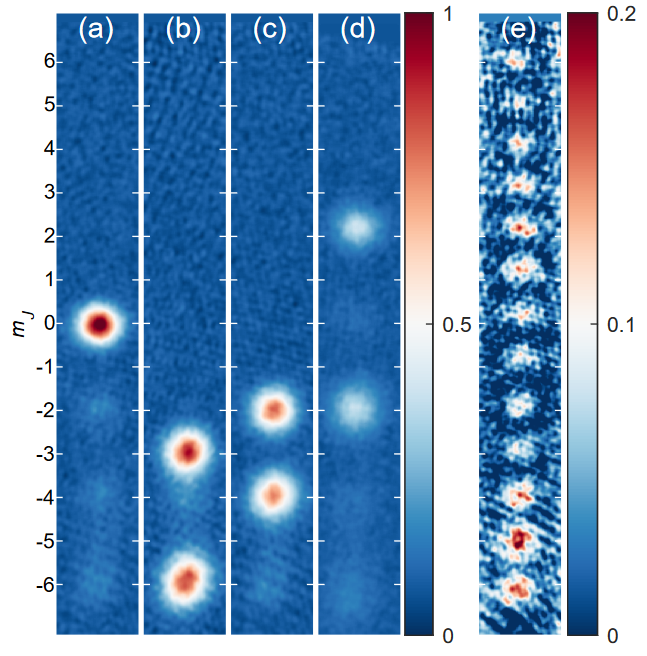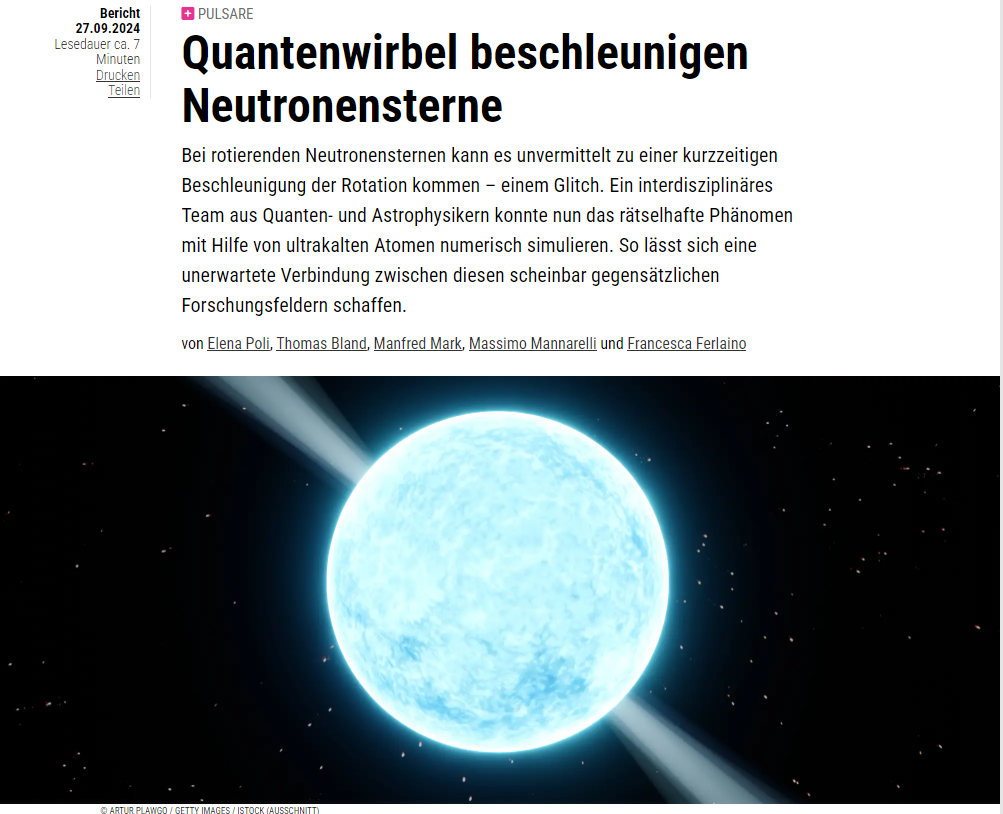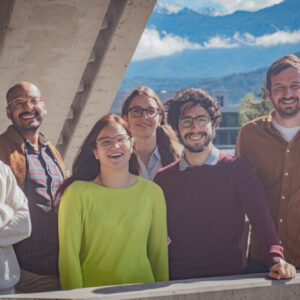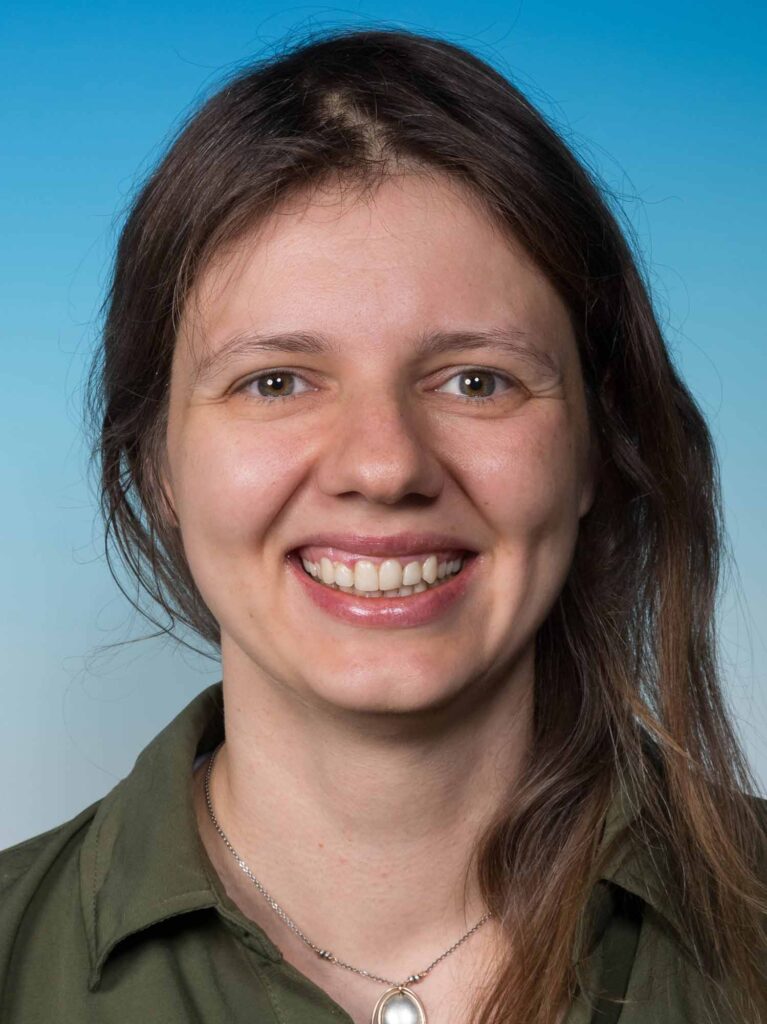Francesca was crowned as the ‘Austrian of the Year’ in the research category at the Austria 24 gala by Die Presse!
 Pramodh Yapa
Pramodh Yapa
Optical Manipulation of Spin States in Ultracold Magnetic Atoms

The article has now been published in Physical Review Research, and the pre-print can be accessed here: arxiv.org/abs/2405.01499.
Spektrum magazine article: glitches in supersolids and neutron stars for Sterne und Weltraum
 For German speakers: in this month’s edition of ‘Sterne und Weltraum’ of Spektrum magazine, you will find an article about the links between glitches in supersolids and in neutron stars, written by our very own Elena Poli, Thomas Bland, Manfred Mark, and Francesca Ferlaino, alongside frequent collaborator, Massimo Mannarelli.
For German speakers: in this month’s edition of ‘Sterne und Weltraum’ of Spektrum magazine, you will find an article about the links between glitches in supersolids and in neutron stars, written by our very own Elena Poli, Thomas Bland, Manfred Mark, and Francesca Ferlaino, alongside frequent collaborator, Massimo Mannarelli.
Read the article here: https://www.spektrum.de/news/pulsare-quantenwirbel-beschleunigen-neutronensterne/2206793
Welcome to Felix
 Felix Borchers joins us in the T-REQS lab for 5 months as a Masters Intern! Felix is originally from Bonn, Germany and in 2023 he completed his Bachelors in Heidelberg with a thesis on ‘Simulating Absorption Imaging of Ultracold Fermi Gases’. He is currently in the third semester of his Masters in Physics at ETH Zurich. Welcome to the group, Felix!
Felix Borchers joins us in the T-REQS lab for 5 months as a Masters Intern! Felix is originally from Bonn, Germany and in 2023 he completed his Bachelors in Heidelberg with a thesis on ‘Simulating Absorption Imaging of Ultracold Fermi Gases’. He is currently in the third semester of his Masters in Physics at ETH Zurich. Welcome to the group, Felix!
Welcome to Arina
At the beginning of October, Arina Tashchilina joined our team as a Post-Doc in the T-REQS lab. Arina joins us from the University of Alberta where she was a postdoctoral fellow for three and a half years under the supervision of Prof. Lindsay LeBlanc. Welcome to Innsbruck, Arina!



